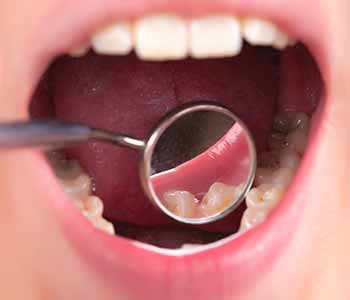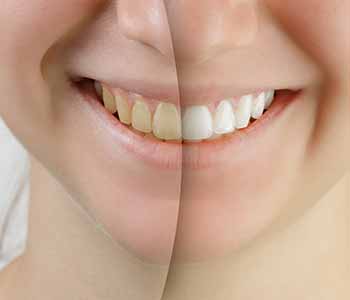
18
Apr
Hamilton, ON dental hygienist illustrates the importance of oral health

Practicing good oral hygiene is important in the prevention of tooth decay and gum disease, but it also plays a significant role in your overall health and wellbeing. Everyone knows that you are supposed to brush and floss to keep teeth looking great, minimize the risk of cavities, and maintain fresh breath, but it doesn’t stop there. Keeping the mouth free of bacteria and infection is just one extra step patients do to stay healthy. At Dentistry on Parkdale in Hamilton, ON, our team of dentists and dental hygienists work with our patients to establish good oral hygiene habits that they can maintain for life.
It’s about more than healthy teeth and gums
If a healthy mouth can help keep your overall health in check, then the opposite is also true. An unhealthy mouth with frequent cavities and gum disease can increase your risk of other health problems, most notably: stroke, diabetes, heart attack, and pre-term labor.
Why the health of the mouth and body are connected
Many may wonder, how does the health of our mouth really impact total wellness? The answer is, in many ways. The condition of your mouth can reveal a lot about the medical health of other areas of the body.
Conditions that may exhibit symptoms in the mouth
When your dentist looks into your mouth, they are also looking into some of the early signs and symptoms of certain diseases that impact your entire body. Two examples are diabetes and AIDS. Both are systemic diseases that are often first discovered due to oral problems.
The importance of saliva

Saliva testing can be used to detect certain toxins, hormones, and antibodies. In fact, saliva samples are an excellent diagnostic tool for doctors. Saliva also works to defend against harmful bacteria and viruses. It contains antibodies and specific proteins that help keep the mouth healthy.
Saliva also helps protect against the bacteria that can inflame the gums tissues and eventually lead to gum disease.
Dental plaque and your health
Without proper brushing and flossing, patients will accumulate plaque along the gum line, which can attract additional harmful bacteria in the space between your teeth and gum tissue. When this happens, the gums can become infected, a condition known as gingivitis. Gingivitis is the first stage of gum disease and causes symptoms such as bleeding while brushing, gum inflammation, and chronic bad breath. If gingivitis is not treated, it can eventually advance to a more serious condition known as periodontitis. At this point, patients may deal with symptoms such as deepening periodontal pockets, loose or shifting teeth, tooth loss and bone degeneration. The symptoms of advanced periodontal disease are not reversible and often require invasive treatment followed by restorative procedures such as crowns, bridges, or implants.
While bacteria from the mouth typically don’t travel to the bloodstream, they can in patients who have gum disease. For patients who have an otherwise healthy immune system, the bacteria are typically caught and eliminated before infections develop in other areas of the body. However, individuals who are immune compromised may be at risk for infections.
Practicing good oral hygiene
After all this information you may be wondering, what steps I can take to improve my oral hygiene. The good news is that the steps are easy and straightforward.

- Make sure that you are brushing at least twice each day. Use a soft bristled toothbrush to brush each tooth at a 45-degree angle and focus on getting all tooth surfaces. Don’t forget to brush the tongue.
- Floss once each day. Flossing is important because it removes trapped food particles that can increase the risk of decay.
- Consider using an antimicrobial mouthwash. While this isn’t required, it can help eliminate the germs in your mouth.
- Maintain six-month dental visits for routine exams and cleanings. These visits allow the dentist or hygienist to spot problem areas early before they become more problematic.
When it comes to your overall health, practicing good oral hygiene can help you to stay healthy. If you live in the Hamilton, ON area, call Dentistry on Parkdale today to schedule a visit.
Share this Article

Dr. Karen Ho is a trusted dentist serving patients of all ages in Hamilton, Ontario. Having studied at prestigious institutes such as McMaster University and University of Toronto and trained at Hartford Hospital (General Practice Residency), she opened her private practice in 2003.
Dr. Ho is committed to lifelong learning as she believes that she can serve her community better by constantly updating herself. She is affiliated with many professional organisations like the Academy of General Dentistry, Institute for Clinical Practice of Pediatric Dentistry, The Dawson Academy Study Club, Niagara Peninsula Dental Diagnostic Study Club, Hamilton Chapter of the Seattle Study Club (Founding Member), and Boston and Tufts Universities.





